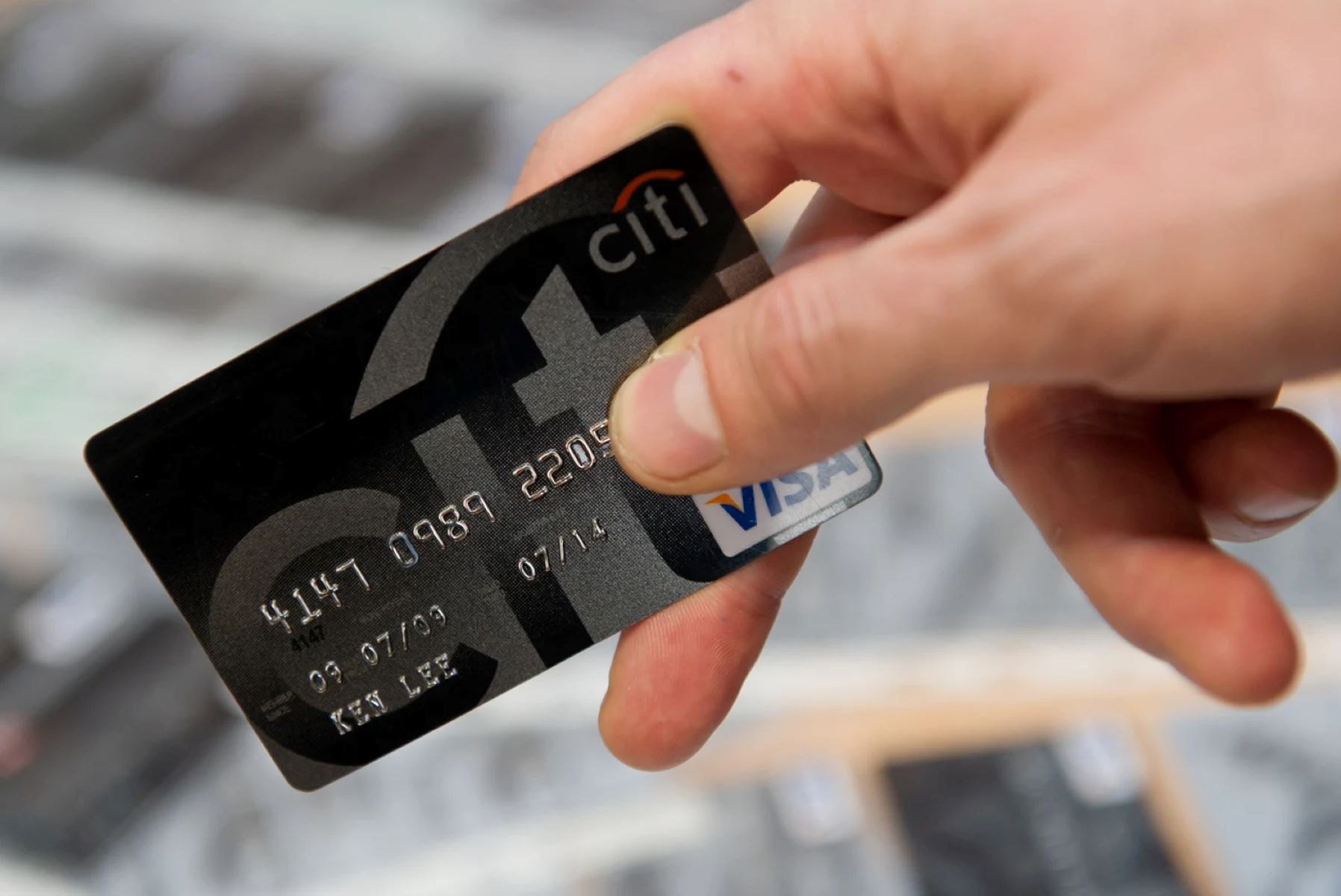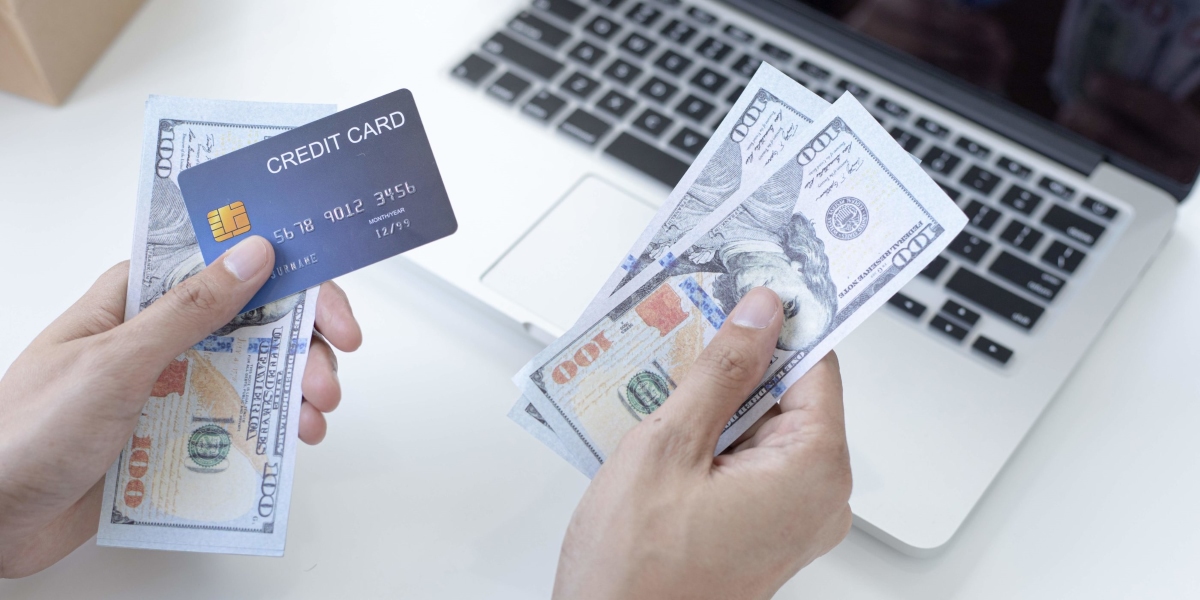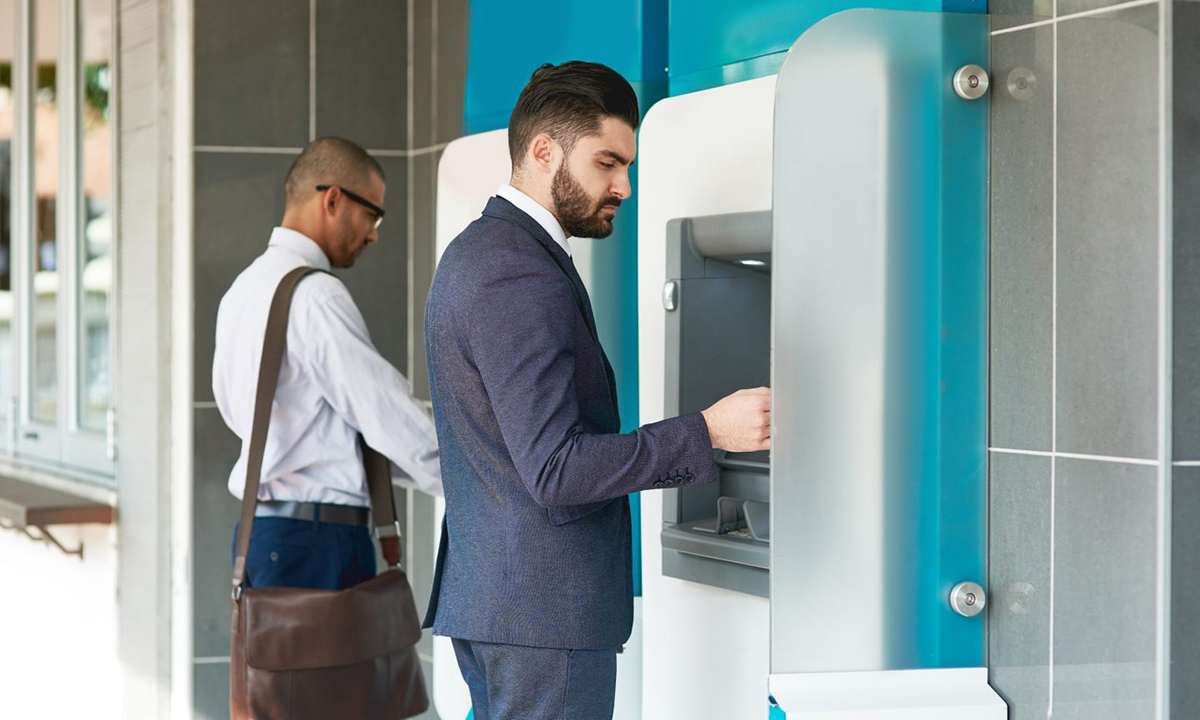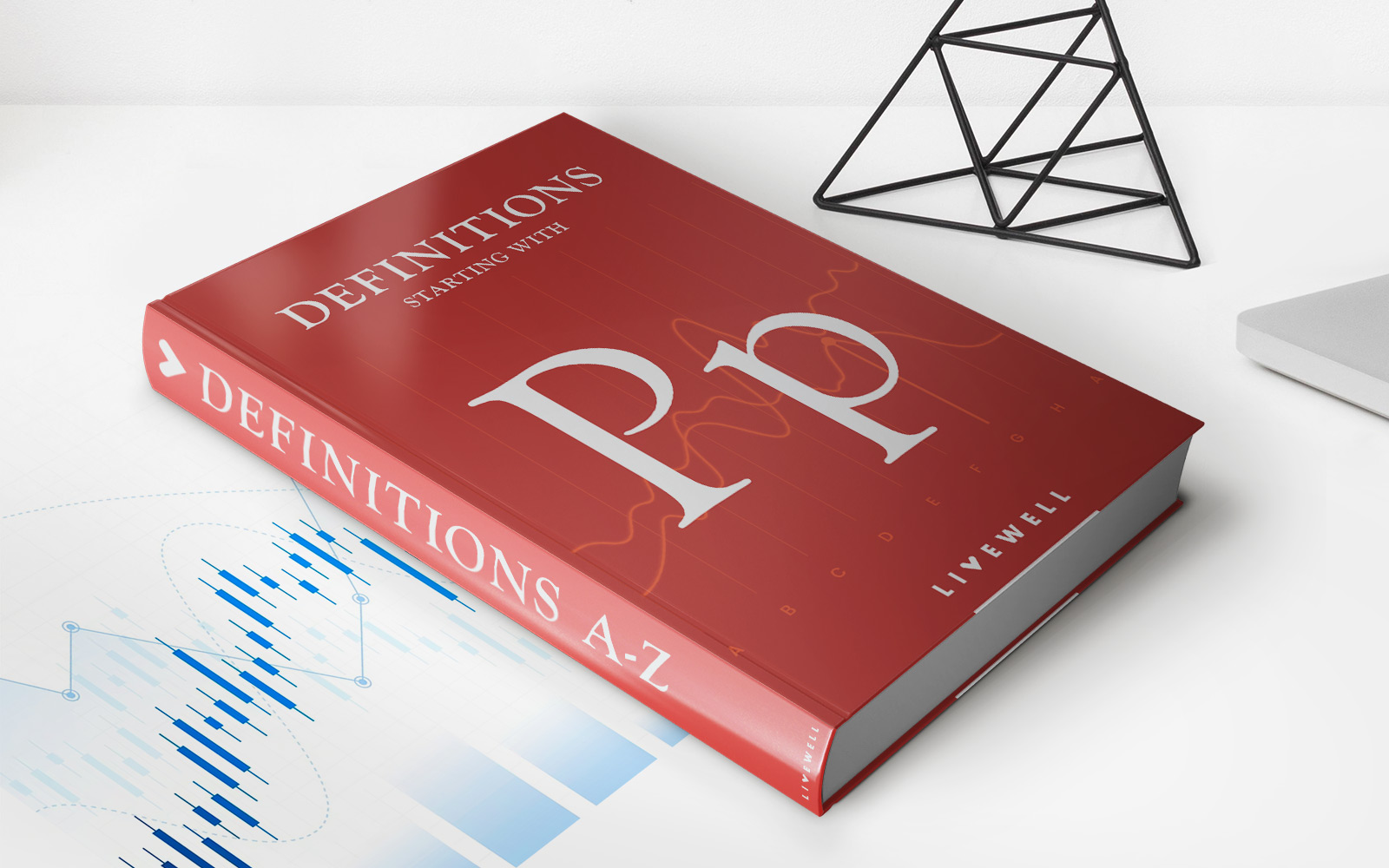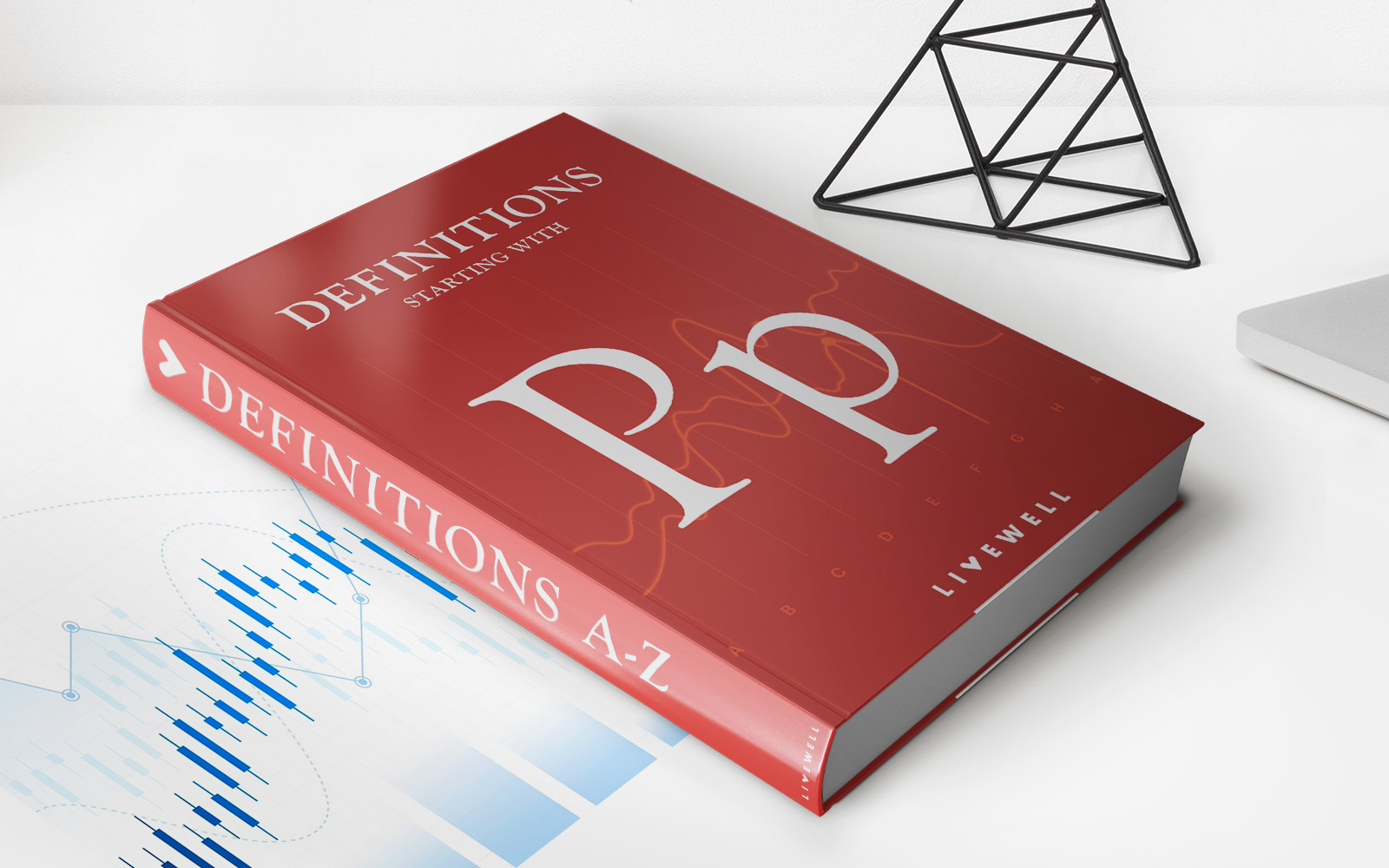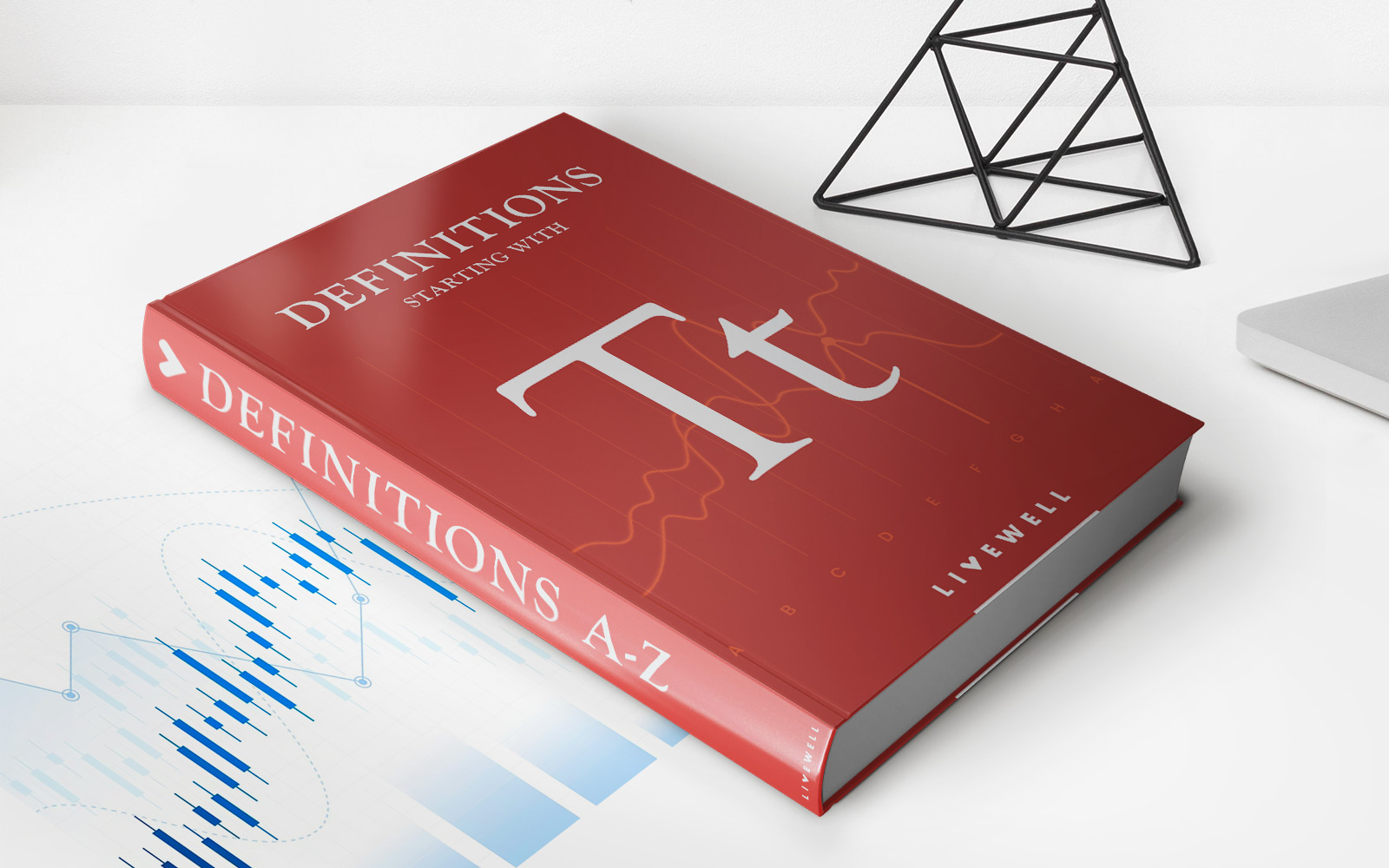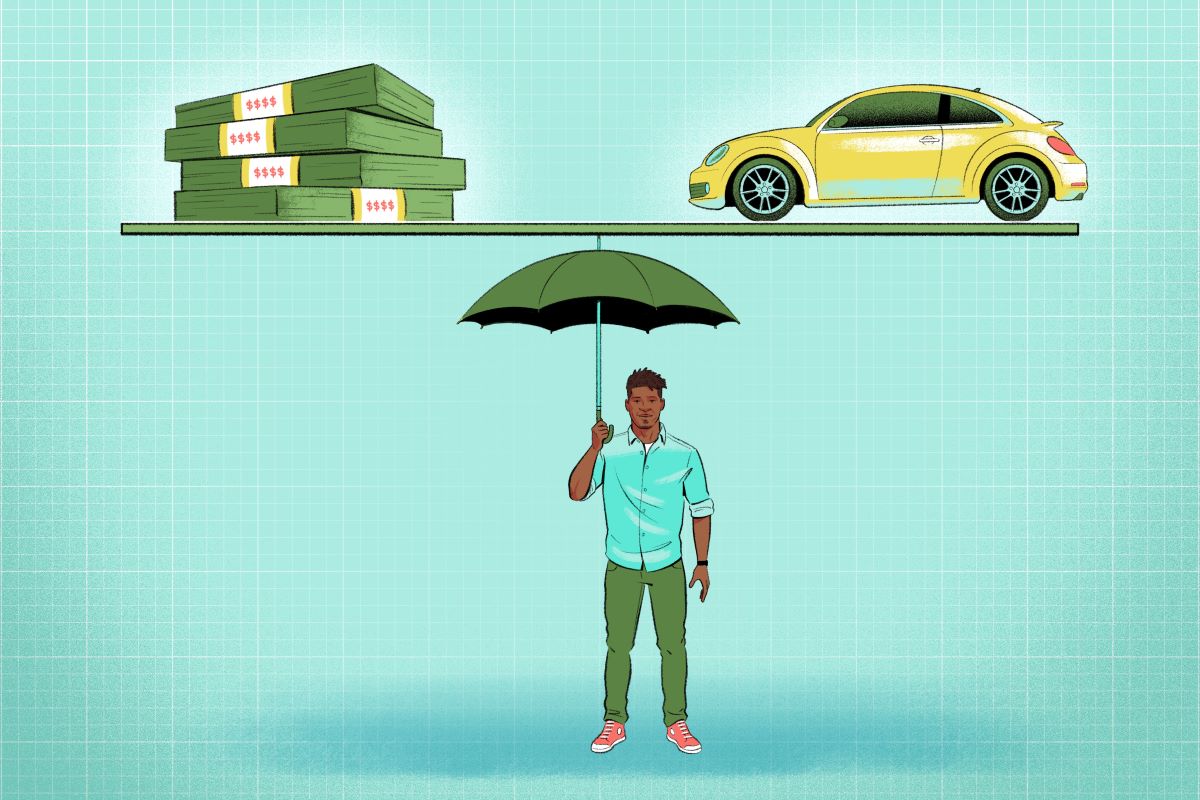

Finance
What Happens If You Don’t Pay A Credit Card
Modified: February 21, 2024
Discover the consequences of not paying a credit card bill and how it can impact your finances. Take control of your financial future and avoid the pitfalls of unpaid debt.
(Many of the links in this article redirect to a specific reviewed product. Your purchase of these products through affiliate links helps to generate commission for LiveWell, at no extra cost. Learn more)
Table of Contents
Introduction
Having a credit card can be a convenient way to make purchases and manage your finances. However, if you find yourself unable to pay your credit card bill in full and on time, it can lead to a host of negative consequences. Understanding what happens if you don’t pay a credit card bill is crucial in order to avoid financial difficulties and protect your creditworthiness.
Credit card debt occurs when you borrow money from a financial institution to make purchases and repay it over time. Failing to make timely payments can result in a variety of penalties and fees, as well as potential legal actions taken by the credit card company.
In this article, we will delve into the consequences of not paying your credit card bill and explore the impact it can have on your credit score, the accumulation of late fees and penalty charges, the possibility of legal actions being taken against you, and the various debt settlement options available to help you regain control of your finances.
Understanding these potential ramifications will provide you with the knowledge and motivation to prioritize your credit card payments and take the necessary steps to prevent financial troubles.
Understanding Credit Card Debt
Before diving into the consequences of not paying your credit card bill, it’s important to have a clear understanding of credit card debt. When you use a credit card, you are essentially borrowing money from the issuing bank or financial institution to make purchases.
Unlike a debit card, which deducts funds directly from your bank account, a credit card gives you a line of credit that you can utilize. You are required to make minimum monthly payments on the outstanding balance, and any remaining balance accrues interest.
When you fail to pay your credit card bill, your debt accumulates, and the interest charges can significantly increase your total owed amount. The longer you go without making payments, the more your debt grows, leading to potential financial difficulties down the line.
It’s important to note that credit card debt is categorized as unsecured debt, meaning it is not tied to any collateral. This is in contrast to secured debts, such as a mortgage or auto loan, where the lender can repossess the collateral if payments are not made.
Unsecured debt provides more flexibility in terms of repayment plans but also puts the lender at a higher risk. To mitigate this risk, credit card companies charge higher interest rates compared to secured debt. Knowing this, it becomes crucial to stay on top of your credit card payments to avoid falling into a cycle of increasing debt and financial instability.
Now that we have a basic understanding of credit card debt, let’s explore the potential consequences if you don’t pay your credit card bill on time.
Consequences of Not Paying Your Credit Card Bill
When you fail to pay your credit card bill, a chain of consequences is set in motion. These consequences can have a significant impact on your financial well-being and creditworthiness. Here are some of the main consequences you may face:
- Damage to Your Credit Score: One of the most significant consequences of not paying your credit card bill is the negative impact on your credit score. Payment history makes up a significant portion of your credit score, and missed or late payments can lower your score significantly. This can make it difficult to obtain future credit and may result in higher interest rates if you do get approved.
- Accumulation of Late Fees and Penalty Charges: Credit card companies impose late fees and penalty charges for missed or late payments. These fees can quickly add up and make it even more challenging to pay off your debt in the future.
- Increase in Interest Charges: When you don’t pay your credit card bill in full, interest charges begin to accrue on the remaining balance. The longer you go without payment, the more interest you will accumulate, making it harder to get out of debt.
- Loss of Promotional APRs or Rewards: Some credit cards offer promotional annual percentage rates (APRs) or rewards programs, but these benefits can be revoked if you fail to make your payments on time.
- Potential for Legal Actions: If you consistently fail to make payments, the credit card company may take legal actions against you. This can include filing a lawsuit, obtaining a judgment against you, or seeking wage garnishment.
It’s essential to recognize that the consequences of not paying your credit card bill can have long-lasting effects on your financial health. Therefore, it is crucial to address the issue as soon as possible and explore viable solutions to manage your debt effectively.
Credit Score Impact
When it comes to credit card debt, one of the most significant consequences of not paying your bill on time is the negative impact on your credit score. Your credit score is a three-digit number that represents your creditworthiness and is used by lenders to assess your ability to repay debt.
Missed or late payments on your credit card can have a detrimental effect on your credit score. Payment history makes up a significant portion of your credit score, typically around 35%. This means that consistently making late payments or failing to pay altogether can lower your credit score significantly, making it harder for you to access credit in the future.
The exact impact on your credit score will depend on various factors, including how late the payment is, the amount of the delinquent payment, and the overall strength of your credit history. However, even a single late payment can have a negative effect.
When your credit score decreases, it can lead to several challenges. Lenders may view you as a higher credit risk, resulting in potential loan rejections or higher interest rates if you can secure credit. Landlords may also hesitate to rent to you, and insurance companies could charge higher premiums.
Additionally, a lower credit score can affect your ability to obtain favorable terms on future credit cards, mortgages, or auto loans. It can also impact your eligibility for certain jobs or housing opportunities that require a credit check.
Rebuilding your credit score after a late payment can be a slow process. It requires consistent, on-time payments and responsible credit card usage over a period of time. It’s essential to take steps to improve your credit score, such as paying your bills on time, keeping credit card balances low, and monitoring your credit report regularly.
Ultimately, the impact on your credit score should serve as a reminder of the importance of responsible financial management and prompt payment of your credit card bills.
Late Fees and Penalty Charges
When you don’t pay your credit card bill on time, credit card companies typically impose late fees and penalty charges. These additional charges can add up quickly and make it even more challenging to get your finances back on track. Here’s what you need to know about late fees and penalty charges:
Late Fees: Credit card companies usually charge a late fee if you fail to make your minimum payment by the due date. The amount varies depending on your credit card issuer and the terms of your agreement, but it can range from around $25 to $39 per late payment. If you consistently miss payments, these fees can accumulate, significantly increasing your overall debt.
Penalty Interest Rates: In addition to late fees, credit card companies may also impose penalty interest rates if you are consistently late on your payments. These penalty rates are significantly higher than your regular interest rate and can range from 25% to 30% or more. As a result, your overall debt can grow rapidly due to the increased interest charges.
Minimum Payment Issues: Making only the minimum payment on your credit card can also result in additional fees. If you consistently make minimum payments but don’t bring down your balance significantly, you may incur what’s known as the “revolving debt trap.” This means you’re only making small progress in paying down your debt while accumulating additional interest charges.
Affect on Credit Score: Late payments can also have a negative impact on your credit score, as mentioned in a previous section. Any late payments reported to the credit bureaus can stay on your credit report for up to seven years, affecting your creditworthiness and making it more difficult to obtain credit in the future.
To avoid late fees and penalty charges, it’s crucial to make your credit card payments on time. Setting up automatic payments or reminders can help ensure that you never miss a due date. If you find yourself struggling to make your payments, consider reaching out to your credit card issuer to discuss hardship programs or alternative payment arrangements.
Remember, paying your credit card bill on time not only helps you avoid unnecessary fees and charges but also protects your credit score and overall financial well-being.
Legal Actions and Debt Collection
When you consistently fail to pay your credit card bill, the credit card company may take legal actions or enlist the help of debt collectors to recover the outstanding debt. Understanding the potential legal consequences and debt collection practices can help you navigate these situations effectively. Here’s what you need to know:
Lawsuits: If your credit card debt remains unpaid for an extended period, the credit card company may file a lawsuit against you to collect the debt. They can take legal action to obtain a judgment that allows them to garnish your wages, place liens on your property, or freeze your bank accounts to satisfy the outstanding debt. It’s important to respond to any legal notices promptly and seek legal advice if necessary.
Debt Collection Agencies: If the credit card company is unable to collect the debt themselves, they may sell it to a third-party debt collection agency. Debt collectors are known for their persistence in pursuing payment. They may contact you through phone calls, letters, or even visit your home or workplace. It’s crucial to understand your rights under the Fair Debt Collection Practices Act (FDCPA) and to know that you have the right to request that they communicate with you in writing only.
Impact on Credit Score: Legal actions and debt collection efforts can have a severe impact on your credit score. Lawsuits and judgments are public records that can be reported on your credit report, further damaging your creditworthiness and making it challenging to obtain credit in the future.
Negotiating with Creditors and Debt Collectors: If you’re facing legal actions or dealing with debt collectors, it’s important to explore options for negotiating with your creditors. In some cases, you may be able to work out a repayment plan or settle the debt for less than the full amount. It’s essential to communicate openly and honestly with your creditors or debt collectors to find a solution that works for both parties.
When faced with the possibility of legal actions or debt collection, seeking professional advice from an attorney or a credit counseling agency can be helpful. They can guide you through the process, explain your rights, and help you develop a plan to resolve your debt while minimizing the negative impact on your financial well-being.
Remember, it’s always best to address your credit card debt before it escalates to legal actions or debt collection efforts. Open communication, proactive problem-solving, and responsible financial management are key to avoiding these consequences.
Debt Settlement Options
If you find yourself in a situation where you’re struggling to pay your credit card debt, there are debt settlement options available to help you regain control of your finances. Debt settlement involves negotiating with your creditors to pay off a portion of your outstanding debt, typically in a lump sum or through a structured payment plan. Here are some common debt settlement options:
Debt Settlement Plan: A debt settlement plan involves negotiating with your creditors to settle your debt for less than the full amount owed. This can be done by working directly with your creditors or through a debt settlement company that acts as an intermediary. The goal is to reach a mutually agreeable amount that you can afford to pay, while also satisfying the creditor’s desire to recoup some of the outstanding debt.
Debt Consolidation: Debt consolidation involves combining multiple debts into a single loan with a lower interest rate. This can make your monthly payments more manageable and simplify your financial obligations. Debt consolidation can be done through a balance transfer to a credit card with a lower interest rate, a personal loan, or a home equity loan, depending on your individual circumstances.
Credit Counseling: Credit counseling agencies can provide guidance and assistance in managing your debt. They can help you develop a personalized budget, negotiate with your creditors to lower interest rates or eliminate fees, and provide educational resources to improve your financial literacy. Credit counseling can be a beneficial option for those who need guidance in navigating their debt situation.
Debt Management Plan: A debt management plan (DMP) is an agreement between you and your creditors that helps you repay your debt in a structured manner. Through a DMP, you make monthly payments to a credit counseling agency, which then distributes the funds to your creditors on your behalf. The credit counseling agency may negotiate lower interest rates and waive certain fees to make the repayment process more manageable.
It’s important to keep in mind that debt settlement options may have consequences, such as negatively impacting your credit score. It’s crucial to carefully consider the potential risks and benefits and seek professional advice from a credit counselor or financial advisor to determine which option is best for your specific situation.
Remember, the key to successfully settling your debt is to communicate openly with your creditors, be proactive in seeking assistance, and develop a realistic plan to get back on track financially.
Bankruptcy as a Last Resort
When all other debt relief options have been exhausted and your financial situation becomes overwhelming, declaring bankruptcy may be a last resort to obtain a fresh financial start. Bankruptcy is a legal process that helps individuals or businesses eliminate or repay their debts under the protection and supervision of the bankruptcy court. Here are some key points to consider:
Chapter 7 Bankruptcy: Also known as liquidation bankruptcy, Chapter 7 involves the sale of non-exempt assets to pay off creditors. In return, your eligible debts are discharged, providing you with a clean slate. However, this may result in the loss of certain assets, and not all debts can be discharged, including student loans and child support obligations.
Chapter 13 Bankruptcy: Chapter 13 bankruptcy allows individuals with a steady income to create a repayment plan over three to five years to pay off their debts. This provides an opportunity to catch up on missed mortgage or car loan payments while protecting assets from liquidation. At the end of the repayment plan, any remaining eligible debts are typically discharged.
Impact on Credit Score: Filing for bankruptcy will have a significant negative impact on your credit score. It can stay on your credit report for up to ten years, making it challenging to obtain credit in the future and potentially affecting employment prospects and housing options.
Financial Rebuilding: While bankruptcy is a serious decision, it can provide the opportunity for a fresh start and a path toward financial recovery. It’s important to learn from the experience and implement responsible financial practices moving forward, such as budgeting, saving, and rebuilding your credit slowly over time.
Seeking Professional Advice: Bankruptcy is a complex legal process, and it is strongly recommended to seek the assistance of a qualified bankruptcy attorney. They can guide you through the process, help you understand your rights and responsibilities, and ensure that you navigate the proceedings effectively.
It’s important to carefully consider the consequences and explore all available alternatives before deciding to file for bankruptcy. Bankruptcy should be seen as a last resort when there are no viable options left to manage your debt. Consulting with a financial advisor or credit counselor can provide additional insights and help you make an informed decision.
Remember, the road to financial recovery after bankruptcy may be challenging, but with time, dedication, and responsible financial management, you can rebuild your financial health and regain control of your life.
Tips for Avoiding Credit Card Debt
While credit cards can be useful financial tools, it’s important to use them responsibly to avoid falling into overwhelming debt. Here are some practical tips to help you manage your credit cards and avoid accumulating excessive credit card debt:
- Create a Budget: Establish a monthly budget that includes all of your income and expenses. This will help you understand your financial limits and ensure that you only spend what you can afford to pay back.
- Pay Balances in Full: Whenever possible, pay your credit card balances in full each month. By doing so, you can avoid interest charges and prevent debt from accumulating.
- Make Timely Payments: Pay your credit card bills on time to avoid late fees and penalty charges. Set up payment reminders or automatic payments to help you stay on track.
- Monitor Your Spending: Keep track of your credit card transactions regularly to ensure you’re aware of how much you’re spending. This can help you identify any unnecessary expenses and make adjustments to stay within your budget.
- Avoid Unnecessary Debt: Be mindful of your spending habits and avoid using credit cards for impulse purchases or non-essential items. Consider whether the purchase is a want or a need before making a decision.
- Keep a Low Credit Utilization Ratio: Aim to keep your credit card balances well below your credit limit. This not only reduces the risk of overspending, but it can also positively impact your credit score.
- Read and Understand Credit Card Terms: Familiarize yourself with the terms and conditions of your credit cards. Understand the interest rates, fees, and any applicable rewards programs. This will help you make informed decisions and avoid surprises.
- Build an Emergency Fund: Having an emergency fund can help you cover unexpected expenses without relying on credit cards. Aim to save three to six months’ worth of living expenses for peace of mind.
- Limit the Number of Credit Cards: While having multiple credit cards can offer benefits, it can also increase the risk of overspending and accumulating debt. Be cautious when considering new credit cards and only acquire what you truly need.
- Seek Financial Education: Enhance your financial literacy by attending seminars, reading books, or taking online courses that focus on personal finance. The more you understand about budgeting, credit, and debt management, the better equipped you’ll be to avoid credit card debt.
By following these tips and adopting responsible financial habits, you can effectively manage your credit cards, keep your debt under control, and maintain a healthy financial lifestyle.
Conclusion
Understanding the consequences of not paying your credit card bill is essential for maintaining financial stability and protecting your creditworthiness. Failing to pay your credit card bill on time can lead to a chain of negative effects, including damage to your credit score, the accumulation of late fees and penalty charges, and the possibility of legal actions and debt collection efforts.
To avoid these consequences, it’s important to practice responsible financial management and make timely payments. Creating a budget, paying your balances in full, and monitoring your spending are effective strategies for avoiding credit card debt. Additionally, keeping a low credit utilization ratio, reading and understanding credit card terms, and limiting the number of credit cards you own can all contribute to healthier financial habits.
If you find yourself struggling with credit card debt, there are options available to help you regain control of your finances. Debt settlement, credit counseling, and debt management plans can provide pathways to negotiate with creditors and develop structured repayment strategies.
Bankruptcy should be considered as a last resort, only when all other options have been exhausted. It’s a complex legal process that can have long-lasting repercussions on your credit score and financial future. Seeking professional advice from a bankruptcy attorney is crucial in navigating this path.
Ultimately, taking proactive steps to manage your credit card debt and practicing responsible financial habits will not only protect your credit score and financial well-being, but also empower you to make informed decisions and lead a more stable and financially secure life.



